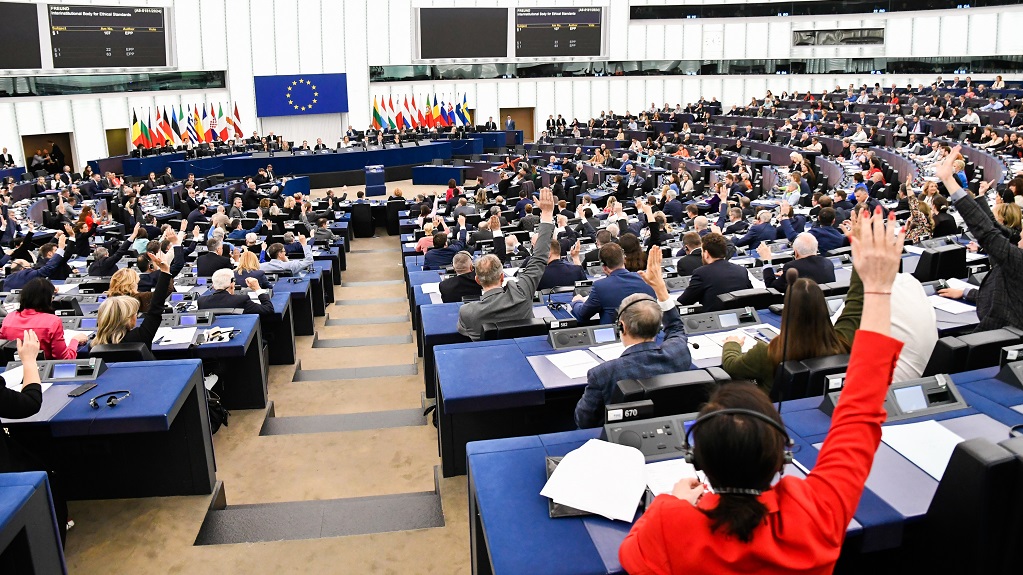With 425 votes, the European Parliament approved the joint motion for a resolution on attempts to reintroduce a foreign agent law in Georgia and its restrictions on civil society. Twenty-five MEPs were against adopting the resolution, and thirty abstained.
News
The European Parliament categorically condemns the "Transparency of Foreign Influence" bill initiated by the ruling Georgian Dream and notes that it is incompatible with the values of the European Union, democratic principles, and Georgia's ambitions to join the European Union.
As long as the Russian law remains part of Georgia's legal order, the European Parliament notes that negotiations on the country's accession to the European Union should not be opened. Accordingly, the European Parliament calls on the Georgian authorities to cease discussions on the Russian law.
The European Parliament condemns the fact that the Georgian government is inspired by Russia's Foreign Agents law, which deliberately labels and discredits civil society organizations and activists.
It is also being used to suppress opposition to Russia's aggressive war in Ukraine and to silence the remaining critical voices in the country.
Along with the full text of the resolution, they also supported the amendments initiated in it, according to which the European Parliament:
- Calls on the European Commission to immediately assess the impact of the Foreign Agents law on Georgia's fulfillment of visa liberalization criteria, particularly on fundamental rights, which are a crucial component of the visa liberalization policy;
- Condemns the personal role played by the sole oligarch of Georgia, Bidzina Ivanishvili, in the current political crisis and in another attempt to shift the country's course oriented towards the West in favor of turning to Russia. Reiterates the call to the Council of Europe and the democratic partners of the European Union to consider imposing personal sanctions on Bidzina Ivanishvili for his role in the deterioration of the political process in Georgia and for working against the interests of the people.
- Again calls on the Georgian authorities to release former President Mikheil Saakashvili on humanitarian grounds and allow him to receive proper treatment abroad; underlines that his case makes even clearer the importance of carrying out real reform in the justice system.
- Calls on the majority of Georgian Dream to repeal the constitutional bill that restricts LGBTQ rights, which is an attack not only on the LGBTQ community but also on freedom of speech and a free civil society.
"This is the final insult from the members of the European Parliament towards the Georgian people, which is a sad reality.
There are European Parliament elections in June. I hope that the citizens of the European Union will make a better decision and entrust the appropriate mandate to the appropriate persons," - this is how the Georgian Parliament chairman responded to the resolution.
Shalva Papuashvili stated that this political document has "no executive function or power".
On April 3, 2024, Georgian Dream once again initiated the Russian law on Foreign Agents in parliament, which was withdrawn a year ago as a result of thousands of protests, and promised that it would never be accepted again. The Russian law obliges independent media and non-governmental organizations, which work with grant support from international organizations and cannot be controlled by the government or related groups, to register as foreign agents.















